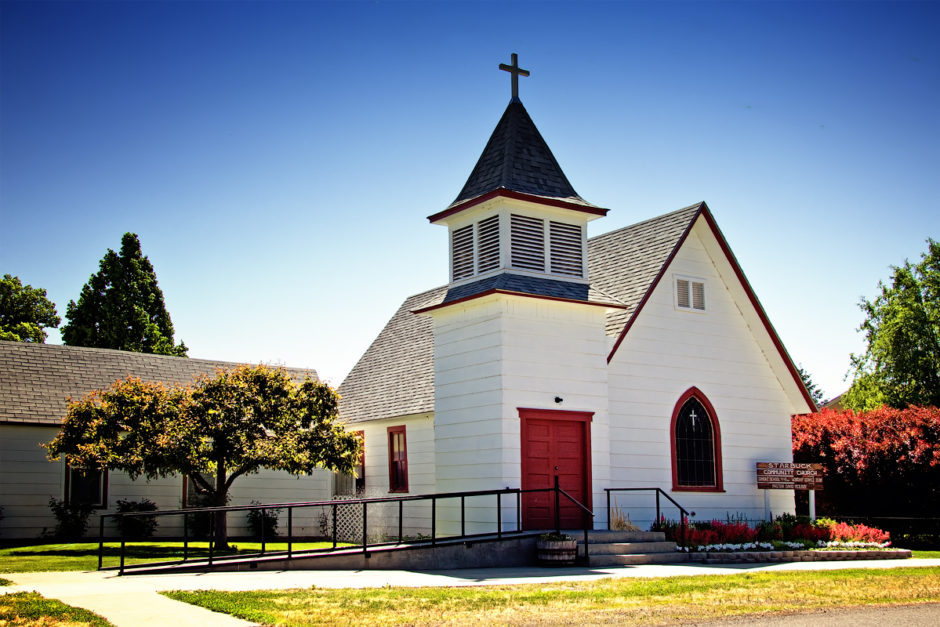Having been enrolled in a Southern Baptist Church as “baby Holmes” seven months before birth, I’ve lived in the Baptist bubble for nearly sixty-seven years. Not until I attended seminary at age 30 did I know there was a Christian calendar. Up to that point I thought the seasons of the church year involved homecoming, spring and fall revivals, Vacation Bible School, promotion Sunday, the Lottie Moon Christmas Offering, Janie Chapman Easter Offering, the days we recognized the oldest mothers and fathers, quarterly celebrations of the Lord’s Supper, and monthly business meetings. When my church history professor mentioned “Advent” I was suspicious that he was trying to convert us to Roman Catholicism.
Observing the growing cultural secularism in subsequent years provided a nudge toward more intentional emphasis of the Christian calendar. Examination of worship forms was a logical starting line. One revealed truth in my study was the reality that a fixed liturgy actually guided our non-liturgical, free form worship. We had our own established rubrics of worship that seemed untouchable in church life. A second truth I learned involved the way even our church family and the Christian community at large had become separated from the biblical foundation of many of our most sacred holidays. Yes, we sang Christmas carols and preached about the birth of Jesus after Thanksgiving, emphasized the Triumphal Entry and the resurrection during the week of Easter, and had a Valentine banquet each year. But if the real meaning of the seasons wasn’t apparent in society, it may have been because they weren’t all that visible in our evangelical churches.
Only three observances are mandated in the New Testament: the Lord’s Supper, baptism, and the gathering of the local church on the Lord’s Day. Yet, many of our national holidays have biblical precedents or were, at the least, initiated by Scriptural ideals. Over the years, partial and selective utilization of the Christian calendar seemed significant as a means of keeping the practices of the church and our influence on the world around us grounded in faith. Let me add that the four churches I served never submitted to a lectionary system of worship definition or to the observance of every festival and ritual practiced by the more liturgical churches. Yet, following an abbreviated Christian calendar, specifically those days centered on the person of Christ, was appropriate because of several important factors—
(1) The cultural factor.
Culture naturally leans toward secular models. This is increasingly evident in our nation today as major holidays take on an increasingly secular bent. Following the Christian calendar and promoting observances within the church and in public venues reinforced our seasonal impact within the local community. Did it help us win the culture wars? Perhaps in a small way. Attendance at these worship experiences always peaked. And, these emphases were a strong biblical counter-point to the cultural leanings of the times.
(2) The outreach factor.
Making disciples of all nations begins with proclaiming the Gospel. Research continues to indicate that many non-affiliated citizens attend church during the special seasons of the church year like Christmas, Easter, and the New Year. Our attention to these calendar times enabled Gospel proclamation to more unaffiliated people. As a result, the impetus to remain Gospel centered was an effective template in our event planning.
(3) The discipleship factor.
The Christian calendar provides times of purposeful, intentional teaching on significant biblical topics and themes. These seasons permit correction of cultural myths and underscoring biblical truth to those attending. Perhaps it’s time for people to know that Round John Virgin or the Little Drummer Boy weren’t actually part of the manger scene.
(4) The creativity factor.
There are prescribed liturgical forms for each of the observances of the Christian year. Yet, in the free-form churches there is the opportunity for more contemporary interpretations of the events taken from Scripture. Acknowledging the special times of Christian worship is a tutorial in the gifts and talents of God’s people and varying expressions of biblical truth. I’ll never forget my first Maundy Thursday experience and the way our worship teams sought to emphasize the betrayal and arrest of Jesus.
(5) The unity factor.
The modern Christian church is diverse in every possible human way—doctrine, practice, governance, and worship, to mention a few. When we are gathered around the common themes of the Christian year we transmit a unity centered on the person and ministry of Jesus Christ, the genuine focus of each seasonal observance.
Are we bound by Scriptural mandate to observe the Christian calendar? Certainly not. As in any other spiritual consideration we must resist the temptation to formulate human traditions in our expressions of faith and practice, including our personal and corporate worship. God’s Word certainly emphasizes the specific elements of worship, evangelism, instruction, fellowship, and mutual care within the corporate body. Paul counseled the Colossians against the danger of passing judgment in “…questions of food and drink, or with regard to a festival or a new moon or a Sabbath” (Colossians 2:16). He warned, “These are a shadow of things to come, but the substance belongs to Christ” (v.17). The rituals of the Christian calendar can be as routine and mundane as anything that trivializes the place of Christ in our lives and worship. In the very next chapter of the Epistle to the Colossians Paul provided the context for every action of the Christian life. He wrote, “And whatever you do, in word or deed, do everything in the name of the Lord Jesus, giving thanks to God the Father through him” (Colossians 3:17).
Several weeks ago we reflected on the tragic events of September 11, 2001. I remember leading our church in worship fifteen years ago the next week as a pivotal moment of clarity for me. There were many new faces in our church that day, and in most other churches as well. We planned a very traditional service themed around the faithfulness of God. Our songs and hymns were anthems of his mighty providential care and provision. We read Scripture responsively. When we prayed the Lord’s Prayer in unison, the hearts of the worshipers were joined in ways I had not experienced in a while. Most of my colleagues affirmed that same kind of corporate worship shared across denominational and doctrinal lines by a nation in mourning and need.
It was for me a unity of intent and human brokenness that humbled us and elevated Christ. That morning refreshed in me our human need to be on the same page with other Christians on occasion, attuned to the Kingdom beyond the boundaries of local churches.
And, the joys of observing the Christian calendar on occasion.





No Comments